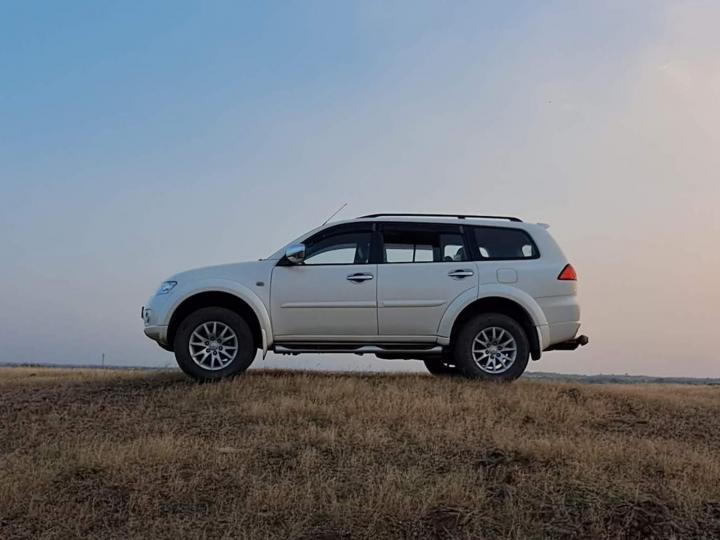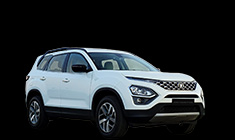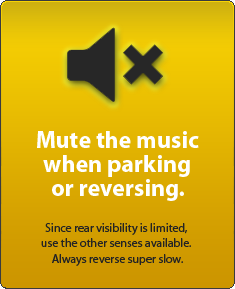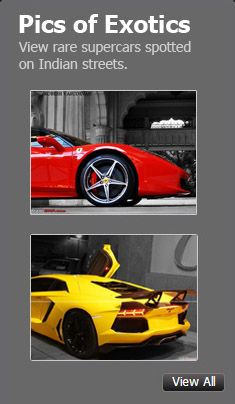News
Identifying genuine vs fake parts for my Mitsubishi Pajero Sport
If you are a Mitsubishi car owner, I have high hopes from you. Are you able to source verifiable OEM/Mitsubishi parts ? Please share your experience and contact details of the parts dealer.
BHPian HJ13 recently shared this with other enthusiasts.
Hi BHPians,
Thanks for helping me decide if I should purchase the vehicle. (Should I buy a Used Mitsubishi Pajero Sport with only 18k on the odo?). I need your help again, this time for identifying and sourcing genuine parts for this vehicle.
As Mitsubishi does not run any service center in my state (Gujarat), I explored various options to source parts.
The first service after purchase was in a garage owned by an ex Mitsubishi Authorized Service foreman. I saw Mitsubishi parts for the first time and was satisfied by the writing on the box. I don’t remember the markings/writings on the part itself. They charged me as follows:
- Oil Filter - Rs. 1200
- Fuel Filter - Rs. 1500
- Air Filter - Rs. 1300
During the second service, I purchased parts myself from a local shop. The AC cabin filter had Mitsubishi written on it along with the part number. Oil filter was just having the part number. I do not remember the price for each part, but the charges were high. For example,
AC Cabin Filter - Rs. 1850
For the recent service, I tried some other options.
I purchased some parts from a shop at Kashmiri Gate, Delhi over the phone. The owner was very helpful. When I insisted on a fuel filter with the manufacturer's name on it, he advised me to purchase Toyota Innova fuel filter locally because it is a direct fit for Pajero. I purchased weather strips for rear doors and he advised me to apply a particular oil (later I found that it is a silicon oil/spray) on front door strips so that they last long. Prices were low.
- Oil Filter - Rs. 600 (named A in this post), Rs 850 (named D in this post)
- Fuel Filter - Rs. 350
- Air Filter - Rs 750
- AC Cabin Filter - Rs. 650
I also tried online options (Here are some examples - mechkartz, Parts Drive India, JDS services, MotorCare, etc)
Prices were reasonable.
- Oil Filter - Rs. 750 (named B in this post), Rs 1200 (named C in this post)
- Fuel Filter - Rs. 750
- Air Filter - Rs 800
Now comes the main discussion point. How can I make sure the parts I purchased are genuine quality parts ? This is important especially for parts like oil filters. Here are some videos on Youtube that I watched.
- The importance of quality oil filter.
- One way of making the filter, and another way.
As you can see, the difference is in material used, precision and sophistication in workmanship and quality control. Making as per the required specification (bypass valve opening pressure, flow rate and filtration, etc) vs reverse engineering.
Here is the comparison of the four oil filters (named A, B, C and D) I purchased. I do not know if they are genuine (acceptable oil filtering and flow rates), or are counterfeit (will damage the engine if used). However if you inspect them closely, you can differentiate.
Note: I installed oil filter 'C' and forgot to take photos of it. Sorry for that. However photos of box of C are present.
Oil filter (Part no - 1230A186)
The box:
They are almost identical except some markings,

shape of flaps (C has long flaps with smooth rounded ends)

some spelling mistakes (on A)


and the presence of instructions in Thai language (missing on A).



The casing of filter:
Note the typos on A and D (etancheite is the correct spell)




Look at the yellow/pink dot(s) on B, C and D which may be related to quality check. No such dot on A.

Looks like some unique identification code different for each filter manufactured. 'C' has it (check the image of C above), however no such code anywhere on 'D'.

The seal which prevents leaking of oil during high pressure (high RPMs) and high temperature (after removing the seals from A and B, I thought I should not do it as it may not get re-fitted properly. So I have not removed them from C and D. I shall do it once the filter is used) :


And as I removed the seal, the welding marks appeared:

Let's look inside now.
The glue and bypass valve:


Close look of the bypass valve:


The inside casing and filtration media:
Note the size of the holes, pattern and density of the filtration media inside. The vertical strip you see in 'B' and 'D' is where the insider cylinder with holes joins. Filter 'C' was having black welding marks instead of this strip.


Weight:
B (730 gm) > D (611 gm) > A (550 gm)
If we think about efficiency, less is better, however, if we think about the material used, more weight may indicate good quality.

Company name and logo:
As you can see, all filters have company name on the box.
Only one filter - 'D' has company name and logo on the filter itself.

Also note that the orientation of writings/instructions on filter 'D' is opposite to all other filters. This orientation is incorrect for a mechanic who wants to read the instructions during installation. However when it is on table, the orientation is correct for reading.

The price:
A - Rs. 600, B - Rs 750, C- Rs 1200, D - Rs 850
My opinion:
'A' is of the lowest quality. I will not use it.
The quality of box of 'C' is the best. However the quality of oil filter itself is important.
I found a little difference in 'B', 'C' and 'D', they all are almost equal if I consider filtration media, rubber seal, casing, etc. The inner cylinder was joined using welding in 'C' which I did not like (photograph not available). 'B and 'D' joins the inner cylinder by pressing the ends and forming a strip, which I liked.

'D' is the only one having company name and logo but the spelling mistakes on it makes me believe that it is not manufactured by the company. 'B' (and probably 'C' too) is not having any spelling mistakes.
So my opinion is: B = C > D > A
Questions I have:
- Which among these filters are OEM part and meets the required specification ?
- Why 'A', 'B' and 'C' do not have their manufacturer’s name, manufacturing date, etc. on them. Where are they manufactured ? By which company ?
- If you are a Mitsubishi car owner, I have high hopes from you. Are you able to source verifiable OEM/Mitsubishi parts ? Please share your experience and contact details of the parts dealer.
- If you are a Mitsubishi parts supplier, please light up this area and help us keep our cars as reliable as they were meant to be when manufactured.
- If you represent Mitsubishi, thanks for making such a good SUV, but why you left your customers struggling like this for parts ? Isn't there a law forcing you to make the parts available for 10 or so years after discontinuing the product ?
Check out BHPian comments for more insights and information.



















